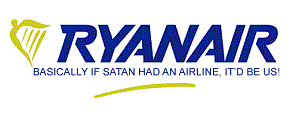ALL ABOUT TDS
It is the fact that income tax is demanded from the individual at the end one of the financial year but at times income tax is deducted from the source. This is called TDS or tax deducted at source.
TDS is charged on the salary of an individual. Also it is charged on income accumulated through interest of any kind.
Moreover it is also charged on windfall gains like winning the lottery. It is also charged on payment of immovable property. TDS is also charged on rent paid to a landlord.
Thus as we can see that TDS is applicable to many different gains and income.Then you will file your return and pay income tax then this TDS is deducted from your income tax.
Thus TDS is a form of prepayment of tax, which is deducted at source and then is deducted from your total income tax as per Suvigya Jain Singhi.
ALL ABOUT ADVANCE TAX
Advance tax is ‘pay as you earn’tax. That means that instead of paying tax as a lump sum at the end of the financial year you can pay tax in installments. Failure to pay advance tax lead to penalty. But for this you have to submit your all documents with
Also you do not have to pay advance tax if your tax liability is less than rupees 10,000.
There are specific dates on which you have to pay Advanced tax installments.
For example you have to be up to 15% of tax on or before 15th June of the previous year.
Also you have to pay up to 45% of Advance tax balance liabilitybefore 15 September of the previous year
You have to pay up to 75% of Advance tax balance liability before 15 December of the previous year.
And finally you have to pay up to hundred percent of advance tax liability before 15 march of the previous Financial year.
It is also important to note that the due dates and amount of Advanced tax for both individual and Corporate tax payers has become the same since the financial year 2016-17 informs Suvigya Jain Singhi.
ALL ABOUT EXEMPTION FROM INCOME TAX
There are alsocertain investments and expenditures on which you get exemption from income tax. It is important to note that the exemption is only up to rupees 1.5 lakh
Some of them I’ve stated below:
- PROVIDENT FUND AND VOLUNTARY PROVIDENT FUND
Here you receive full tax exemption and also an interest rate of 8.5 percent p.a
- PUBLIC PROVIDENT FUND
This is also a tax-free investment and you get more than 8.5 percent p.a but the maximum investment amount is 1.5 lakhsp.a
- LIFE INSURANCE PREMIUM
All life insurance premiums you are paying are exempted from income tax
- ELSS or Equity Linked Saving Schemes
These are special mutual funds where you get tax exemption under section 80 c
- HOME LOAN REPAYMENT
The principal component of the home loan repayment is exempt from income tax
Thus we can see that there are many ways in which you can save tax and also reap good returns according to Suvigya Jain Singhi.

